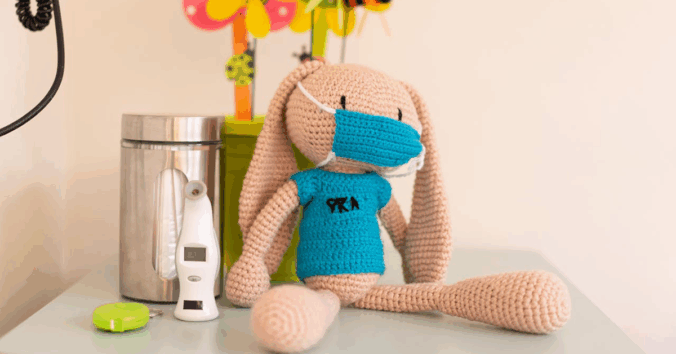Inadequate staffing, competing tasks and unexpected events can sometimes make it difficult to provide patients with the best possible care. This can be particularly stressful when caring for children with severe diseases. For a nurse, experiencing situations where you cannot provide children with cancer with the best possible care (which means more than just the best possible medical treatment) is an important cause of stress.
To provide a basis for better support for paediatric nurses, a research group interviewed 25 nurses at three Swedish paediatric oncology units. The aim of the interview study was to understand what the nurses experienced as particularly important in situations where they felt they had not been able to provide the best possible care, and how they handled the challenges.
The most important concern for the nurses was to uphold the children’s best interests. One thing that could make this difficult was lack of time, but also disagreements about the child’s best interests could interfere with how the nurses wanted to care for the children. The researchers analyze the paediatric nurses’ handling of challenging situations as a juggling of compassion and competing demands. How do you handle a situation where someone is crying and needs comfort, while a chemotherapy machine somewhere in the ward is beeping and no colleagues are available? What do you do when the most urgent thing is not perceived as the most important?
In the analysis of how the nurses juggled compassion and competing demands, the researchers identified five strategies. One strategy was to prioritize: for example, forego less urgent tasks, such as providing emotional support. Another strategy was to shift up a gear: multitasking, working faster, skipping lunch. A third strategy was to settle for good enough: when you can’t provide the best possible care, you strive to at least provide good enough care. A fourth strategy was acquiescing in situations with different perceptions of the patient’s best interests: for example, continuing to treat a patient because the physician has decided so, even though one believes that prolonged treatment is futile. Regarding this strategy, the nurses requested better dialogue with physicians about difficult patient cases, in order to understand the decisions and prevent acquiescing. The fifth and final strategy was pulling together: to support each other and work as a team with a common goal. Often, there was no need to ask for support; colleagues could spontaneously show solidarity by, for example, staying after their work shifts to help.
In their conclusion, the authors write that adequate staffing, collegial support and good interprofessional communication can help nurses deal with challenges in the care of children with cancer. Read the article here: Juggling Compassion and Competing Demands: A Grounded Theory Study of Pediatric Nurses’ Experiences.
While reading, it may be worth keeping in mind that the study focuses only on situations where it was felt that the best possible care could not be given. The authors point out that the interviews overflowed with descriptions of excellent care and good communication, as well as how rewarding and joyful the work of a paediatric nurse can be.

Written by…
Pär Segerdahl, Associate Professor at the Centre for Research Ethics & Bioethics and editor of the Ethics Blog.
Ventovaara P, Af Sandeberg M, Blomgren K, Pergert P. Juggling Compassion and Competing Demands: A Grounded Theory Study of Pediatric Nurses’ Experiences. Journal of Pediatric Hematology/Oncology Nursing. 2025;42(3):76-84. doi:10.1177/27527530251342164
Ethics needs empirical input



0 Comments
1 Pingback